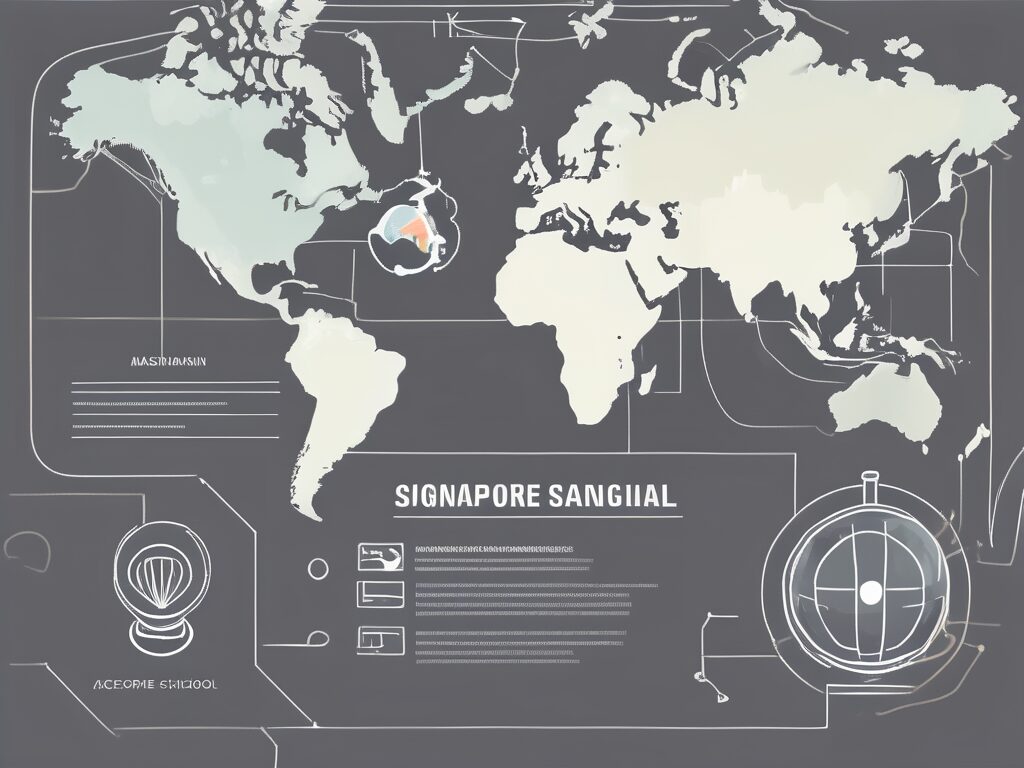Embarking on a career as an international school teacher in Singapore is an exciting prospect. The city-state is renowned for its high standard of education and multicultural environment, making it an ideal place to develop your teaching skills and experience a new culture. However, the application process can be daunting, especially for those unfamiliar with the Singaporean education system. This guide will walk you through the five key steps to successfully apply for a teaching position in an international school in Singapore.
Step 1: Understand the Requirements
Before you start the application process, it’s crucial to understand the requirements for teaching in Singapore. International schools in Singapore typically look for candidates with a Bachelor’s degree in Education or a related field. Additionally, most schools require a minimum of two years of teaching experience. This is akin to the requirements in many Western countries, so if you’re a qualified teacher in your home country, you’re likely to meet the basic requirements in Singapore.
However, bear in mind that these are just the minimum requirements. International schools in Singapore are highly competitive, and having additional qualifications such as a Master’s degree, TEFL certification, or experience teaching the International Baccalaureate curriculum can give you an edge over other candidates. It’s a bit like applying for a job in any competitive industry – the more qualifications and experience you have, the better your chances.
Step 2: Research Schools and Vacancies
Once you understand the requirements, the next step is to research potential schools and vacancies. Singapore is home to a wide range of international schools, each with its own curriculum, teaching philosophy, and community. Some schools follow the British curriculum, others the American or International Baccalaureate, and some offer a blend of different curriculums. It’s a bit like shopping for a new car – you need to find the one that best fits your needs and preferences.
There are several ways to find vacancies at international schools in Singapore. Many schools advertise vacancies on their websites, and there are also several job boards and recruitment agencies that specialise in international education. It’s a good idea to cast a wide net and apply to several schools to increase your chances of landing a job.
Step 3: Prepare Your Application
Once you’ve found a vacancy that suits your qualifications and interests, the next step is to prepare your application. This typically includes a CV, cover letter, and sometimes a teaching philosophy statement. Your CV should highlight your qualifications, teaching experience, and any additional skills or experiences that make you a strong candidate. It’s a bit like creating a marketing brochure for yourself – you want to present your skills and experiences in the best possible light.
Your cover letter should explain why you’re interested in the position and how your skills and experiences make you a good fit. It’s your chance to show your passion for teaching and your interest in the specific school and its community. Think of it as a sales pitch – you’re trying to convince the school that you’re the best candidate for the job.
If the school requires a teaching philosophy statement, this should outline your beliefs about education and how you implement these beliefs in your teaching practice. This is your opportunity to show your understanding of pedagogy and your commitment to student learning. It’s a bit like a mission statement for your teaching career.
Step 4: The Interview Process
If your application is successful, the next step is the interview process. This typically involves one or more interviews, either in person or via video call. The interview is your chance to showcase your teaching skills, knowledge, and passion. It’s a bit like a job audition – you need to impress the interviewers with your performance.
During the interview, you may be asked to discuss your teaching philosophy, your approach to classroom management, and how you handle various teaching scenarios. Some schools may also ask you to deliver a mock lesson or to critique a lesson plan. It’s a good idea to prepare for these potential scenarios in advance so you can give confident, thoughtful responses.
Step 5: Accepting the Offer
If you impress during the interview stage, the final step is to accept the job offer. Before you do so, it’s important to understand the terms of the contract, including salary, benefits, and expectations. International school contracts often include accommodation, health insurance, and flight allowances, but these can vary from school to school. It’s a bit like signing a lease for a new flat – you need to understand all the terms before you sign on the dotted line.
Once you’ve accepted the offer, the school will typically assist with the visa process and provide support for your relocation to Singapore. Then, it’s time to start your exciting new journey as an international school teacher in Singapore!
In conclusion, the process of applying to teach in an international school in Singapore involves understanding the requirements, researching schools and vacancies, preparing your application, going through the interview process, and accepting the job offer. While it may seem daunting, with careful preparation and a positive attitude, you can navigate this process successfully and embark on an exciting new chapter in your teaching career.
Take Your Teaching Career Global with The IQTS at UWE
Ready to elevate your international teaching career? The International Qualified Teacher Status (iQTS) Programme at UWE is your gateway to overcoming the challenges of strict qualification requirements and advancing in the competitive field of international education. With iQTS, you’re not just preparing for a job; you’re enhancing your professional development, increasing your chances of promotion, and joining a vibrant community of educators. Don’t let the opportunity to become a more adaptable and connected teacher pass you by. Make Your Next Step with the iQTS programme and transform your teaching journey today.

